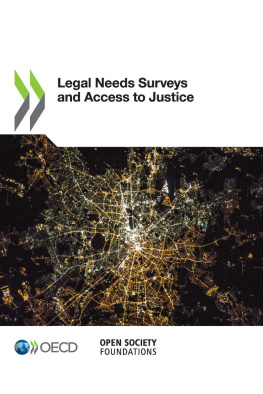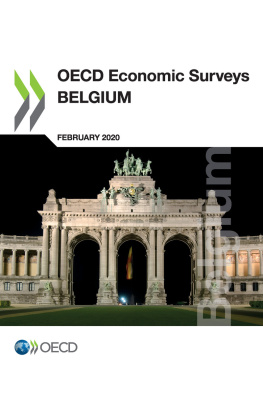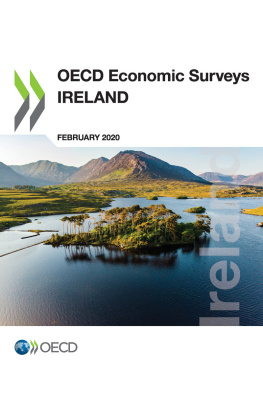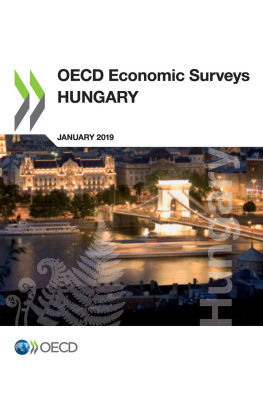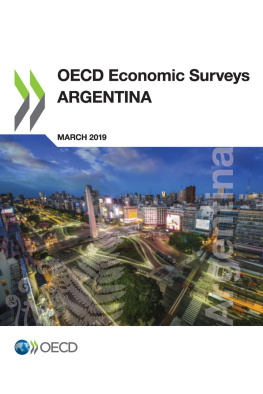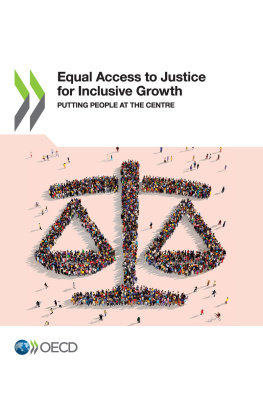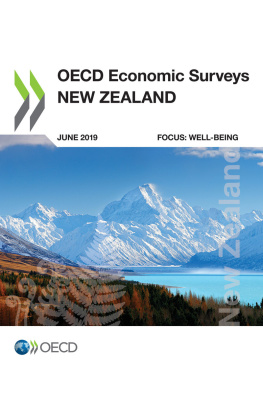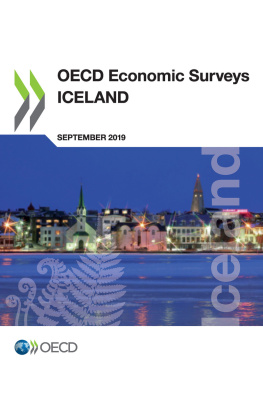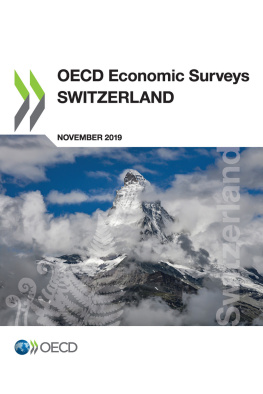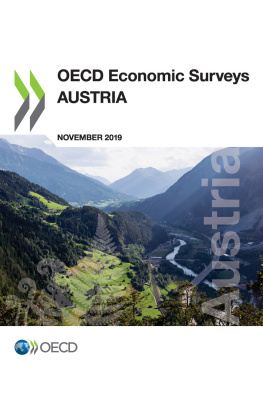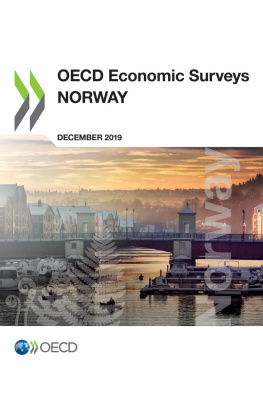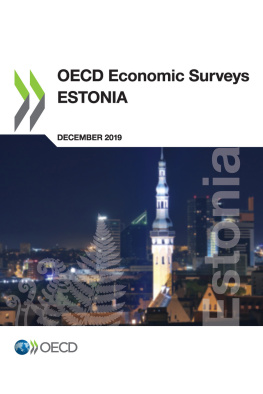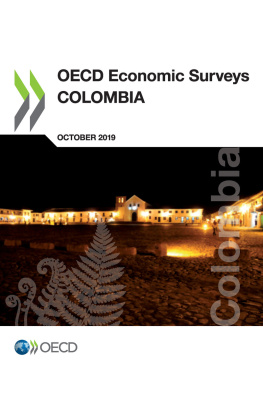OECD and Open Society Foundations - Legal Needs Surveys and Access to Justice
Here you can read online OECD and Open Society Foundations - Legal Needs Surveys and Access to Justice full text of the book (entire story) in english for free. Download pdf and epub, get meaning, cover and reviews about this ebook. year: 2019, publisher: OECD Publishing, genre: Politics. Description of the work, (preface) as well as reviews are available. Best literature library LitArk.com created for fans of good reading and offers a wide selection of genres:
Romance novel
Science fiction
Adventure
Detective
Science
History
Home and family
Prose
Art
Politics
Computer
Non-fiction
Religion
Business
Children
Humor
Choose a favorite category and find really read worthwhile books. Enjoy immersion in the world of imagination, feel the emotions of the characters or learn something new for yourself, make an fascinating discovery.
- Book:Legal Needs Surveys and Access to Justice
- Author:
- Publisher:OECD Publishing
- Genre:
- Year:2019
- Rating:5 / 5
- Favourites:Add to favourites
- Your mark:
- 100
- 1
- 2
- 3
- 4
- 5
Legal Needs Surveys and Access to Justice: summary, description and annotation
We offer to read an annotation, description, summary or preface (depends on what the author of the book "Legal Needs Surveys and Access to Justice" wrote himself). If you haven't found the necessary information about the book — write in the comments, we will try to find it.
Legal Needs Surveys and Access to Justice — read online for free the complete book (whole text) full work
Below is the text of the book, divided by pages. System saving the place of the last page read, allows you to conveniently read the book "Legal Needs Surveys and Access to Justice" online for free, without having to search again every time where you left off. Put a bookmark, and you can go to the page where you finished reading at any time.
Font size:
Interval:
Bookmark:
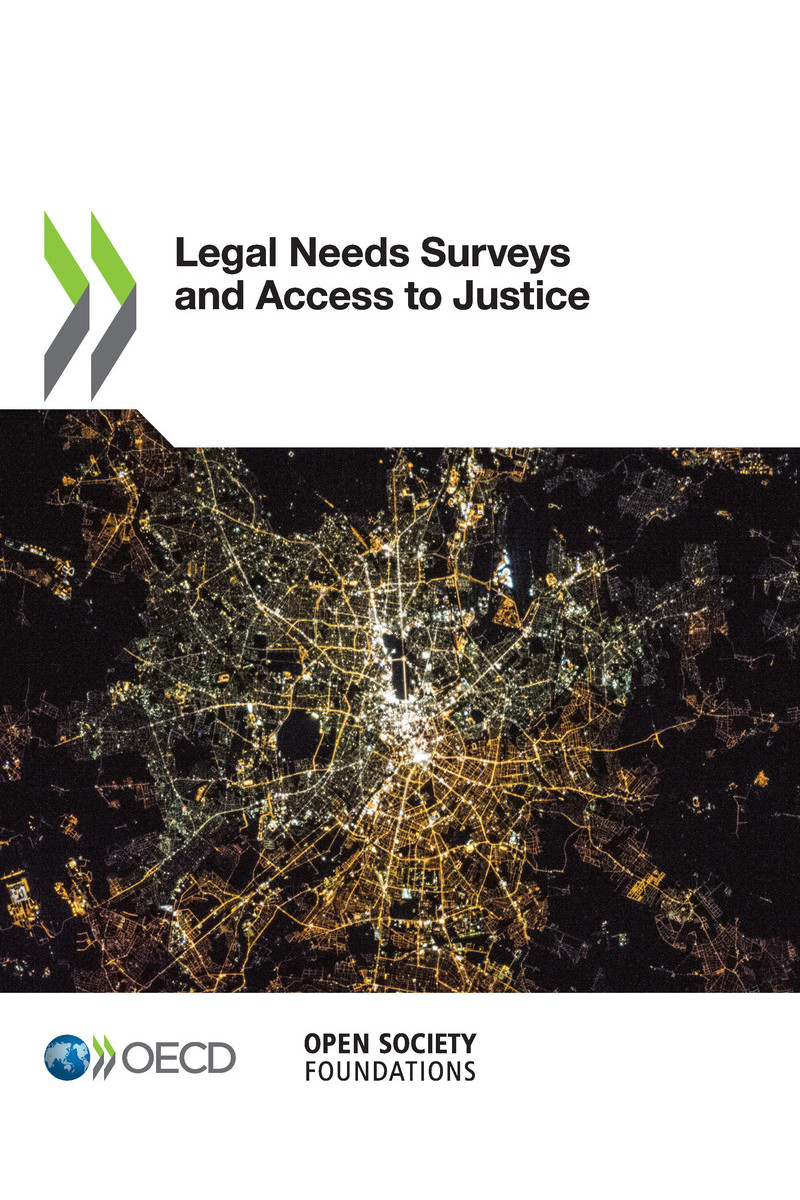
OECD/Open Society Foundations (2019), Legal Needs Surveys and Access to Justice , OECD Publishing, Paris, https://doi.org/10.1787/g2g9a36c-en .
Access to justice and legal empowerment are foundational values of intrinsic importance that are also crucial for achieving inclusive and sustainable growth. Governments and civil society organisations (CSOs) alike recognise access to justice as both a fundamental right and a means of guaranteeing opportunities for all. Without it, the most vulnerable groups and people are left behind.
People and businesses regularly face legal problems; difficulties in addressing these civil and administrative issues may have significant impact on their ability to participate fully in the economy and society, as well as on their productivity, and relationships. Yet, tools and indicators to measure access to justice are under-developed. While research and measurement methodologies exist for the criminal justice sector, they are less developed in areas of civil justice.
In 2016 the Open Society Justice Initiative (the Justice Initiative) and the Organisation for Economic Cooperation and Development (OECD), under the auspices of its Public Governance Committee, joined forces to support a better understanding of justice needs and promote effective access to justice and legal empowerment. To do so, our institutions convened representatives from OECD member and partner countries from various links of the justice chain as well CSO and academic experts.
This Guide on Legal Needs Surveys and Access to Justice is a result of these efforts. The Guide brings together the experience gained through more than 55 national surveys conducted by governments and civil society organisations in more than 30 jurisdictions in the last 25 years. The approach to legal needs surveys detailed in the Guide reflects a wide array of legal traditions and political and cultural environments, as it has benefitted from measurement initiatives in Korea, Nepal, South Africa, Ukraine and other countries.
The Guide provides a framework for understanding and measuring legal needs as well as methodological guidance and model questions to capture three core components of effective access to justice:
The nature and extent of unmet legal and justice needs;
The impact of unmet legal and justice needs on individuals, the community and the state; and
How specific models of legal assistance and dispute resolution are utilised to meet needs.
The Guide seeks to support countries in better understanding, measuring and gauging their progress in implementing people-centred legal and justice services. It is also designed to support the effective implementation of target 16.3 of the 2030 Agenda (to promote the rule of law at the national and international levels and to ensure equal access to justice for all) and the OECD Policy Framework for Policy Action on Inclusive Growth.
Finally, the Guide puts forward the concept of a legal needs-based indicator that focuses on access to civil justice. In doing so, it contributes to the work of Praia City Group on Governance Statistics (established by the United Nations Statistical Commission), whose goal is to encourage countries to produce governance statistics based on sound and documented methodologies and to address the conceptualisation, methodology and instruments needed to produce such statistics.
It is our hope that this pioneering exercise will help us improve access to justice. Understanding peoples justice experiences and needs will help countries deliver more effective public policies, not only in the area of justice and legal empowerment, but also in sectors such as health, housing, employment, education.

James Goldston
Executive Director
Open Society Justice Initiative
Open Society Foundations

Marcos Bonturi
Director
Public Governance Directorate
Organisation for Economic Cooperation and Development
The Guide is a joint production of the Open Society Justice Initiative (the Justice Initiative) and the Organisation for Economic Cooperation and Development (OECD) under synergy work on people-focused approaches to measurement of access to justice.
The form and content benefitted from inputs provided by the OECD Public Governance Directorate under the direction of Marcos Bonturi and by the Open Society Foundations Justice Initiative under the direction of James Goldston and Zaza Namoradze. The OECD work on Equal Access to Justice is led by Tatyana Teplova, Head of Unit, Gender and Justice for Inclusiveness, OECD Public Governance Directorate; coordinated by Chlo Lelievre, Policy Analyst and; under the guidance of Martin Forst, Head of Division, Governance Reviews and Partnerships. The document also draws on the input from Marco Mira dErcole, Head of Division, Household Statistics and Progress Measurement. Numerous Justice Initiative staff contributed to the development of this Guide including David Berry, Senior Communications Officer, Matthew Burnett, Policy Officer, Sumaiya Islam, Senior Program Manager, Zaza Namoradze, Director of the Justice Initiatives Berlin Office and Robert O. Varenik, Director of Programs.
Principal authors of the Guide are Professors Pascoe Pleasence and Nigel Balmer, Co-directors of the Centre for Empirical Legal Studies, University College London, with additional content provided by Peter Chapman, Senior Policy Officer, Justice Initiative.
Font size:
Interval:
Bookmark:
Similar books «Legal Needs Surveys and Access to Justice»
Look at similar books to Legal Needs Surveys and Access to Justice. We have selected literature similar in name and meaning in the hope of providing readers with more options to find new, interesting, not yet read works.
Discussion, reviews of the book Legal Needs Surveys and Access to Justice and just readers' own opinions. Leave your comments, write what you think about the work, its meaning or the main characters. Specify what exactly you liked and what you didn't like, and why you think so.

